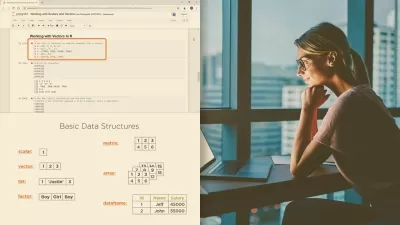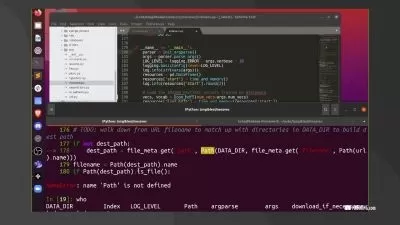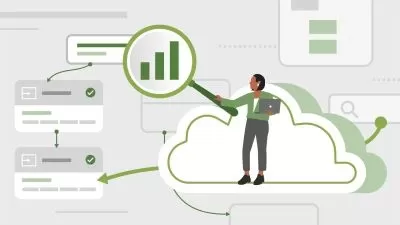Introduction to Flow Cytometry
Lavinia Ionescu
2:10:27
Description
A flow cytometry primer
What You'll Learn?
- Understand the fundamental principles of flow cytometry
- Identify the components of a flow cytometer and describe their role
- Interpret instrument quality control data
- Understand how to determine what fluorochromes can be detected by a flow cytometer based on fluorochrome spectra and instrument configuration
- Summarize characteristics of fluorochromes that are highly relevant in practice (single/tandem, brightness, fluorescence spillover and spreading potential)
- Gain a working understanding of fluorescence compensation
- Plan a flow cytometry experiment using adequate controls
- Learn common first steps for troubleshooting
Who is this for?
What You Need to Know?
More details
DescriptionThis course is designed to help beginner or occasional users of flow cytometry become more familiar with the numerous facets of the field. It may also be useful to intermediate or more frequent operators as a review of the concepts that remain firmly in place across platforms: from the basics of light scattering and fluorescence to the universal main components of flow cytometers, the practical principles of multicolor compensation, and the roles of experimental controls typically used in flow cytometry.
The instructor has 15 years of experience in flow cytometry, at first in academia as a biomedical researcher, then in the industry as a flow cytometry application scientist.
The lectures are built with the awareness that flow cytometry is used for numerous applications, almost all of which rely upon detection of fluorescent molecules. Moreover, in today's "flow" landscape, one-laser instruments coexist with multi-laser analyzers capable of detecting dozens of colors, and several powerful options are available in terms of analysis software.
The course is not focused on any specific software or instruments and is not intended to substitute hands-on training and/or certification courses. Instead, it aims to present the elements that constitute a shared ground among platforms and provide a springboard to advanced flow cytometry concepts.
Captions (November 6, 2022 update): The course instructor is in the process of writing and adding captions; 9 of 21 videos have English captions.
Who this course is for:
- Beginner or occasional users of flow cytometry.
This course is designed to help beginner or occasional users of flow cytometry become more familiar with the numerous facets of the field. It may also be useful to intermediate or more frequent operators as a review of the concepts that remain firmly in place across platforms: from the basics of light scattering and fluorescence to the universal main components of flow cytometers, the practical principles of multicolor compensation, and the roles of experimental controls typically used in flow cytometry.
The instructor has 15 years of experience in flow cytometry, at first in academia as a biomedical researcher, then in the industry as a flow cytometry application scientist.
The lectures are built with the awareness that flow cytometry is used for numerous applications, almost all of which rely upon detection of fluorescent molecules. Moreover, in today's "flow" landscape, one-laser instruments coexist with multi-laser analyzers capable of detecting dozens of colors, and several powerful options are available in terms of analysis software.
The course is not focused on any specific software or instruments and is not intended to substitute hands-on training and/or certification courses. Instead, it aims to present the elements that constitute a shared ground among platforms and provide a springboard to advanced flow cytometry concepts.
Captions (November 6, 2022 update): The course instructor is in the process of writing and adding captions; 9 of 21 videos have English captions.
Who this course is for:
- Beginner or occasional users of flow cytometry.
User Reviews
Rating
Lavinia Ionescu
Instructor's Courses
Udemy
View courses Udemy- language english
- Training sessions 20
- duration 2:10:27
- English subtitles has
- Release Date 2022/11/17










